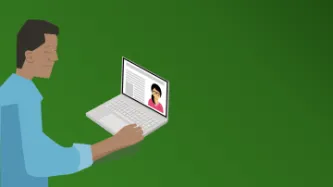Search
Content type: Examples
While traditional media sought to criminalize the widespread November 2020 protests in Peru following the Congressional ouster of President Vizcarra, witnesses disseminated videos and photographs of police abuse on social networks. In the fear and uncertainty, many myths also circulated. In Peru, citizens have the right to refuse to allow police to check their cellphones unless they have a court order; slowed or absent wireless connections may simply be due to overload; as public officials,…
Content type: Examples
Despite having promised in 2016 not to facilitate domestic surveillance, the AI startup Dataminr used its firehose access to Twitter to alert law enforcement to social media posts with the latest whereabouts and actions of demonstrators involved in the protests following the killing of George Floyd. Dataminr's investors include the CIA and, previously, Twitter itself. Twitter's terms of service ban software developers from tracking or monitoring protest events. Some alerts were sourced from…
Content type: Examples
During the Black Lives Matter protests of summer 2020, US police took advantage of a lack of regulation and new technologies to expand the scope of people and platforms they monitor; details typically emerge through lawsuits, public records disclosures, and stories released by police department PR as crime prevention successes. A report from the Brennan Center for Justice highlights New York Police Department threats to privacy, freedom of expression, and due process and the use of a predator…
Content type: Explainer
What is social media monitoring?
Social media monitoring refers to the monitoring, gathering and analysis of information shared on social media platforms, such as Facebook, Twitter, Instagram and Reddit.
It may include snooping on content posted to public or private groups or pages. It may also involve “scraping” – grabbing all the data from a social media platform, including content you post and data about your behaviour (such as what you like and share).
Through scraping and other tools…
Content type: Long Read
Imagine that every time you want to attend a march, religious event, political meeting, protest, or public rally, you must share deeply personal information with police and intelligence agencies, even when they have no reason to suspect you of wrongdoing.
First, you need to go to the police to register; have your photo taken for a biometric database; share the contacts of your family, friends, and colleagues; disclose your finances, health records, lifestyle choices, relationship status, and…

